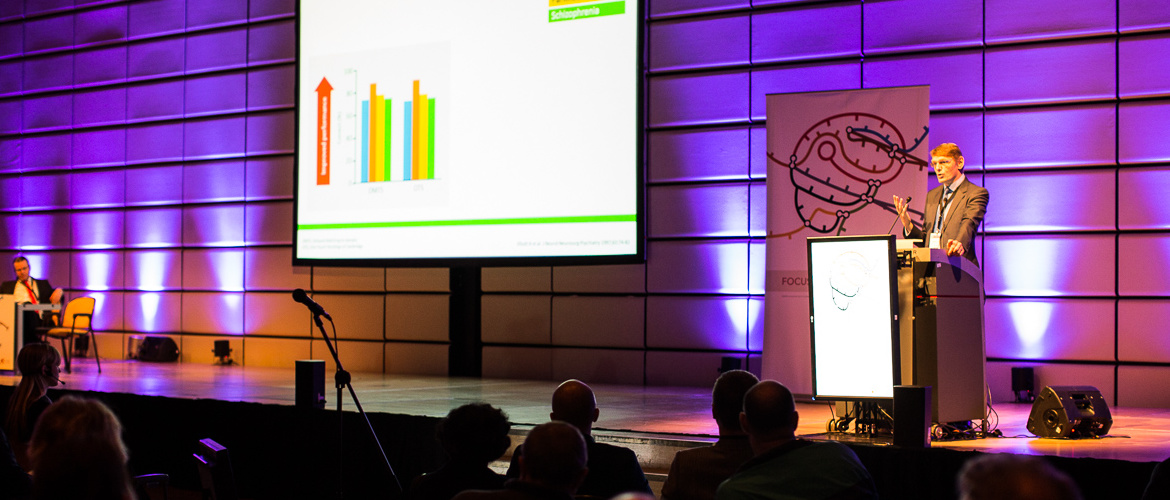
Välj en kanal
Kolla in de olika Progress in Mind-kanalerna.

Progress in Mind

Much needs to be done if we are to deal more adequately with residual symptoms in depression. This applies to recognising the full extent of the problem, finding new tools to assess it, and improving means of treatment.
The problem starts with what we mean by remission, Professor Kamilla Miskowiak (Copenhagen, Denmark) told the symposium Focus on Depression. Conventionally, we define it as reaching a cut-off score on MADRS or HAM-D17. But many patients in remission by this criterion continue to have significant symptoms and half still consider themselves to be depressed.
The standard symptom rating scales pay little attention to patient functioning. True, there is no official definition of functional recovery. But it would have to include quality of life and capacity to undertake work and a social life, Dr. Miskowiak said.
Crucially, the presence of residual symptoms predicts rapid relapse. So we need to focus on them more.
Common residual symptoms in depression are those relating to sleep, energy and cognition. A problem with studying persisting cognitive deficits in depression is that we lack a consensus on terminology and means of assessment. Should we use patient self-rating measures, clinician-rated scales, or performance measures? This is not an idle question since subjective and objective measures correlate poorly, if at all.
Until recently, we have had no tools to use in systematic screening for cognitive deficits in depression. Happily, this situation is now changing. The SCRIP (Screening for Cognitive Improvement in Psychiatry) tool is being validated in several countries and the subjective rating scale COBRA (Cognitive Complaints in Bipolar Disorder Rating Assessment) is not far behind. Both are being validated in depressed patients. The appropriately named THINC® tool (which combines four objective performance measures with the PDQ rating scale) should have been validated by the autumn.
The good news is that 60-90% of depressed adolescents with first episode depression recover within a year. The bad news is that 50-70% of them will have a recurrence over the next five years. And of those in remission, many continue to suffer from functional deficits, said Professor Bernhard Baune (Adelaide, Australia).
Among the cognitive deficits are those in emotion-laden processing (“hot” cognition); those in memory, executive function, speed of thought and attention (“cold cognition”); and those in social cognition.
Problems with emotional processing are evident, for example, in negative affective bias. Depressed patients respond more quickly than controls to sad content (such as sad faces) and less fast to happy content. Functional magnetic resonance imaging shows that these differences are reflected in neural activity. This phenomenon seems specific to depression since it is not seen in Parkinson’s disease or schizophrenia. Also specific to depression is patients’ abnormally strong response to negative feedback.
Recent work from Adelaide shows that patients with abnormal negative affect function less well than others in everyday life.
Problems with cold cognition are evident in the 25-40% of patients with depression whose performance scores fall more than one standard deviation below the population mean. This difference is independent of other psychiatric or medical comorbidity. A high proportion of patients in remission recognise that they suffer such problems and rate them as “quite a bit” or “very much” of a problem.
Social processing involves both hot and cold spheres. Deficits are reflected in social isolation and an impaired understanding of others – evident, for example, in difficulty matching emotions to faces.
Overall, cognitive dysfunction in depression is strongly associated with unemployment and disability in life functioning six months after discharge from hospital.
Full resolution of depressive symptoms, embracing physical, behavioural and cognitive domains, is a major unmet need.
Given the multi-dimensional nature of these problems, it may be that multimodal intervention will make a difference, said Göran Hajak, when summing up the meeting.
Our correspondent’s highlights from the symposium are meant as a fair representation of the scientific content presented. The views and opinions expressed on this page do not necessarily reflect those of Lundbeck.